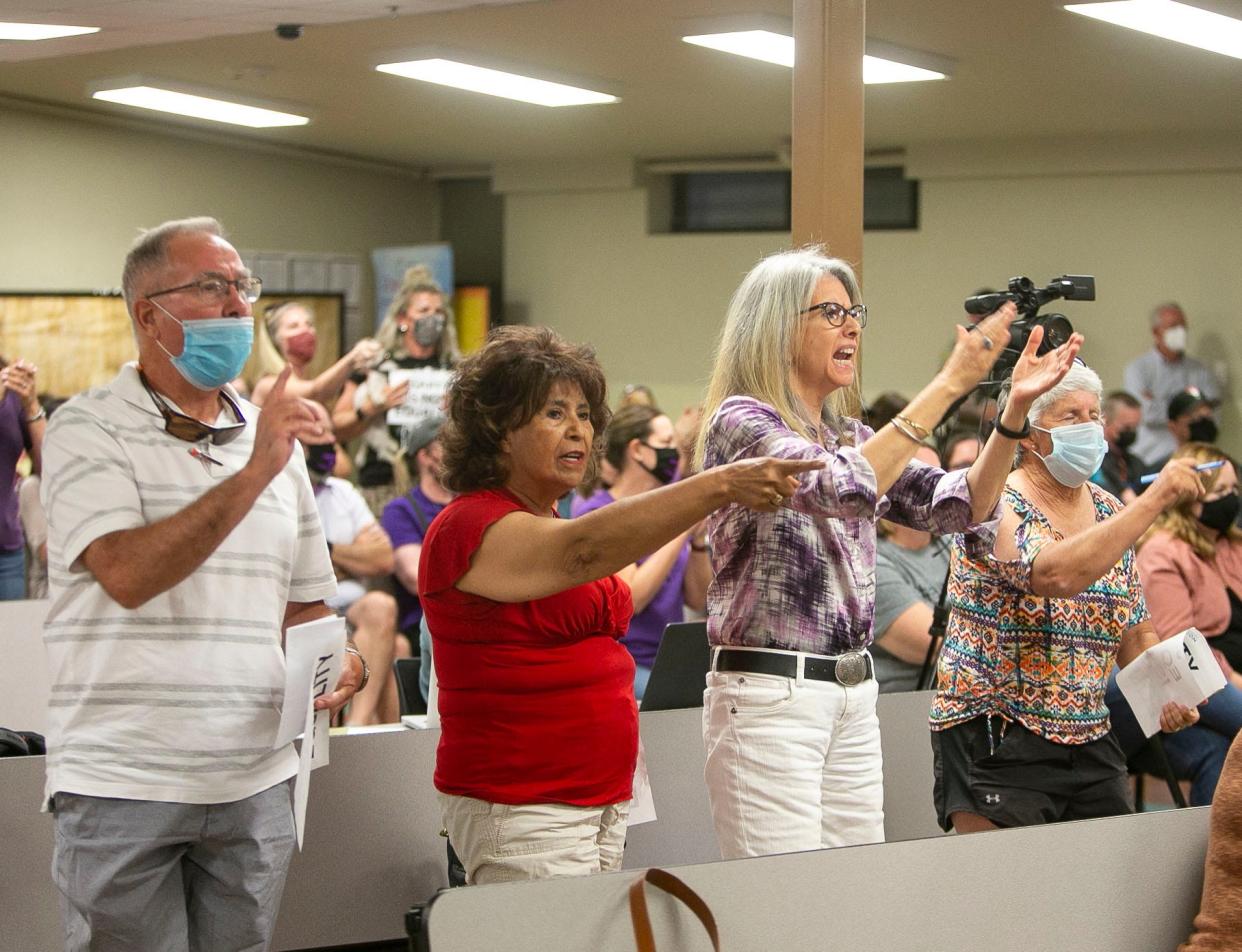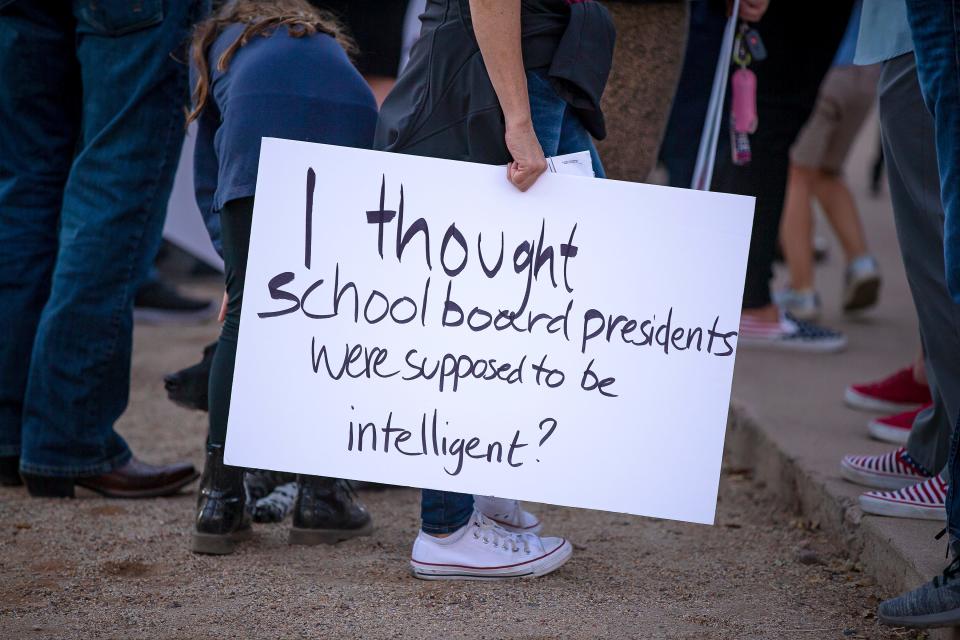Why are metro Phoenix school board races so quiet, after all the turmoil last year?

Last year, when rowdy crowds regularly protested school board meetings across metro Phoenix, it seemed like the elections for these seats would be filled with drama. Or at least a ton of challengers.
Many worried then that partisan causes would flood nonpartisan school board races, and that the national rhetoric on how race and history are taught would overshadow local issues.
Now, it’s oddly quiet.
There are 58 public school districts in Maricopa County, which educate roughly two-thirds of the state’s students. Yet few of the 127 governing board seats up for election – critical leadership positions that oversee the superintendent, set district policy and its budget – are hotly contested in November.
Anger with school boards has largely subsided

What changed?
It’s hard to say. Most education observers remain flummoxed about why, in many cases, school board races have become even lower profile this year than they were before COVID-19 and critical race theory turned board meetings into powder kegs.
One explanation could be that the mask mandates and school closings that once divided parents and spurred recall attempts are no longer a thing.
From 2021: School board members under fire over masks, critical race theory
And while debates over critical race theory and sexual education still rage in school districts nationwide, there is less uproar now over what’s being taught locally.
As public anger subsided, the thinking goes, so did the number of rage-motivated candidates.
It's not that fewer candidates are running
Then again, that assumes there was a mass of candidates who were serious about running in 2021 but didn’t in 2022 – which doesn’t seem to be the case.
The number of candidates who filed statements of interest but aren’t on the ballot was not significantly different for this election than in 2020.
Fewer district elections also were canceled this year because of a lack of competition than in 2018, arguably a more comparable year because a similar number of seats were up for election.
But it was never difficult in years past to identify the county’s most consequential races. Everyone agreed on them. Not so now.
Even close observers have struggled this year to pinpoint a hotly contested race in Maricopa County.
But it's hard to find even 1 hot race
There are plenty of districts with multiple candidates vying for seats, including districts like Litchfield Elementary, Scottsdale and Peoria that experienced some of the greatest turmoil during the pandemic. But even those races are relatively quiet.
Some might say that’s a good thing. Even though a hefty share of incumbents aren’t running again – a trend that began before the pandemic – the tenor is more “steady as she goes” than “let’s do a 180.”
But there is a drawback when so many races remain in stealth mode.
Few candidate forums are scheduled this year, mirroring a national trend away from debates, and candidates up and down the ballot have grown increasingly unwilling to answer questionnaires on key issues.
With a closely divided electorate, the theory is that candidates don’t want to say too much because they think it could risk alienating voters. But that also makes it difficult for voters to decipher how school board candidates might approach hot-button issues.
And there will always be hot-button issues.
Low on the ballot, but not low in priority
Both political parties are stumping for school board candidates this year, though somewhat quietly, and a few interest groups are raising money for those they have endorsed, though nothing like the big cash that is pouring into school board races in states like Florida and Texas.
It’s unclear how (or whether) these efforts might impact election outcomes locally. But it’s possible that a fair number of seats could be won simply based on who has the most campaign signs posted around town.
That would be a shame.
Because there are big issues – such as mitigating the pandemic’s impact on students and tackling the teacher shortage – that will require a strong and sustained response from school boards.
Now is not the time to choose candidates willy-nilly. Especially with all the turnover on boards, we need leaders with concrete plans to take our schools – and our kids, our state’s future – to the next level.
This is an opinion of The Arizona Republic’s editorial board.
This article originally appeared on Arizona Republic: School board candidates are low on the ballot, not low in priority

